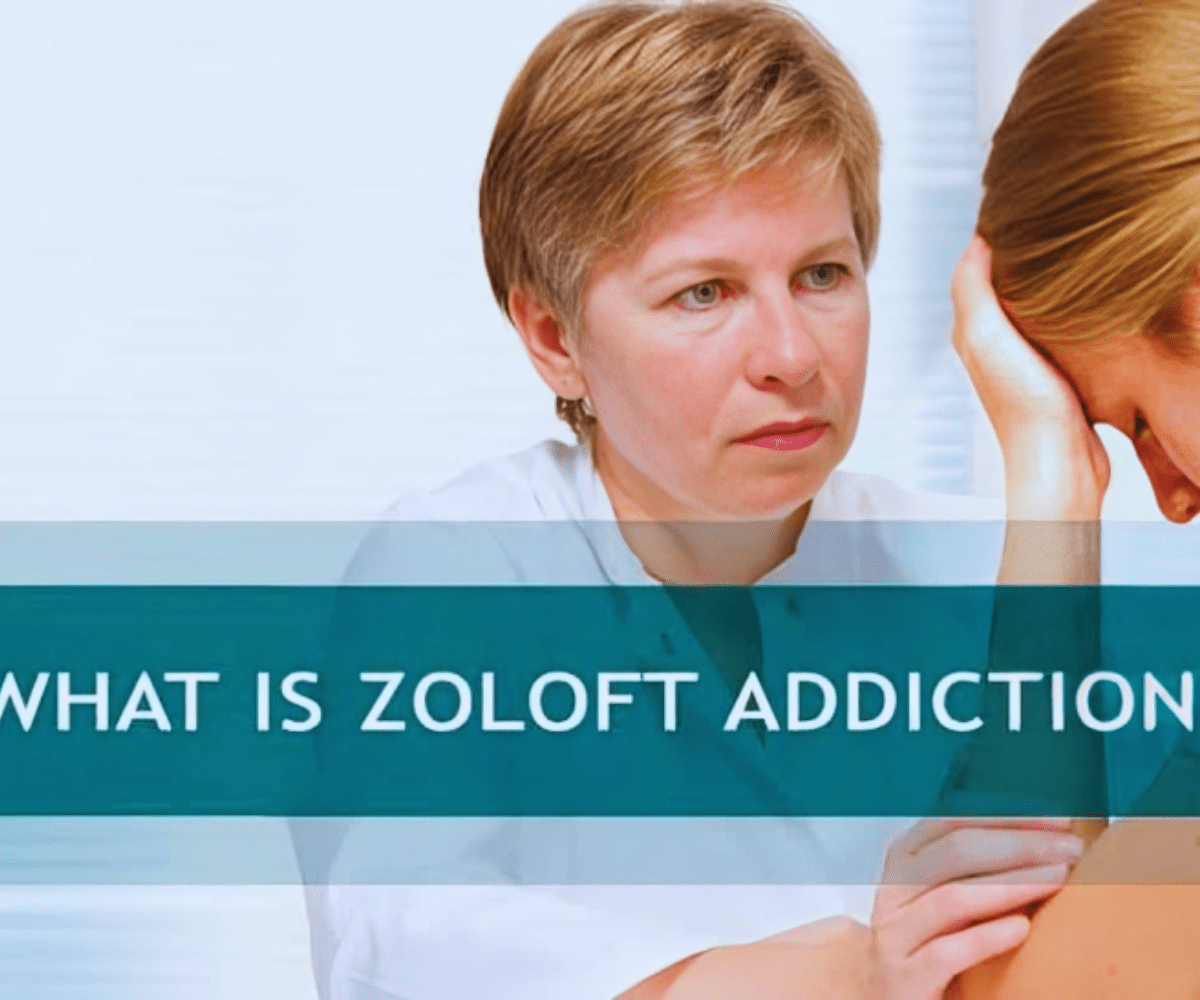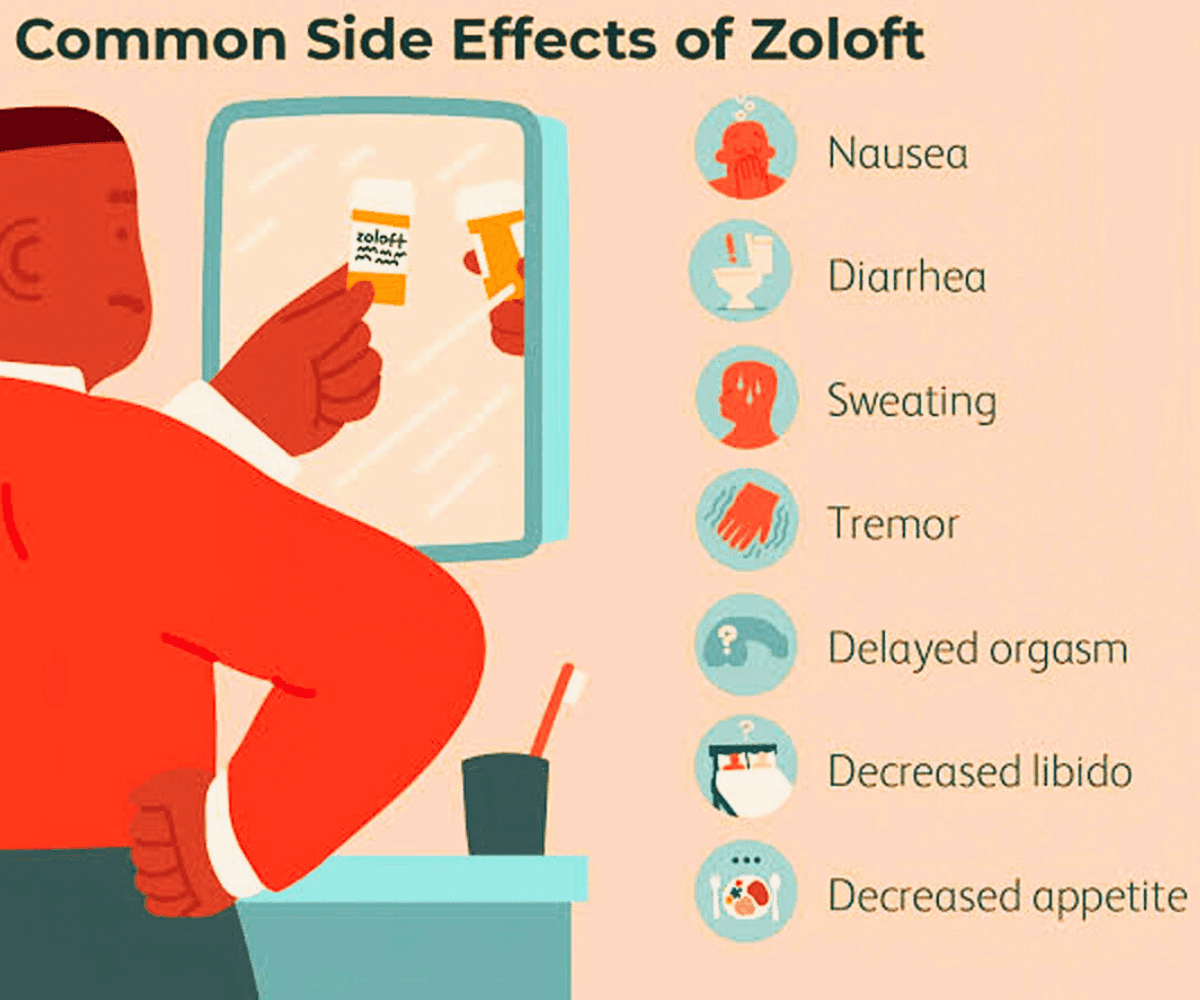Is Zoloft Addictive? Everything You Need to Know


Zoloft is a popular medicine that helps with feeling sad, worried, or overly tense. It’s often given to people with depression, anxiety, OCD, PTSD, or PMDD. But some worry it might lead to dependence.
In this comprehensive guide, we will explore the question “Is Zoloft addictive?” and provide you with valuable insights from experts in the field. Let’s explore how Zoloft works, what might make you need it too much, and ways to use it safely and well.
Understanding Zoloft and Its Mechanism of Action
Zoloft is a type of medicine that helps with depression. It’s in a group of drugs called SSRIs. They work by keeping more serotonin, a chemical in the brain that affects mood, active. This can make you feel better if you’re depressed or anxious.
Is Zoloft Addictive?
People argue about whether Zoloft is addictive. Most think it’s not like addictive drugs. But, some people can rely too much on it. Zoloft doesn’t make you feel high or make you want it more. But, if you use it for a long time, your body might depend on it. So, if you suddenly stop taking it, you might feel withdrawal symptoms.
Withdrawal Symptoms and Discontinuation Syndrome
If you keep using Zoloft for a long time, your brain gets used to having more serotonin. If you stop taking it suddenly, your brain might have trouble getting back to normal, causing symptoms called “discontinuation syndrome” or “withdrawal symptoms.”
Common withdrawal symptoms associated with stopping Zoloft include:
- Dizziness or vertigo
- Nausea and vomiting
- Headaches
- Irritability and mood swings
- Sleep disturbances
- Increased anxiety or depressive symptoms
- Flu-like symptoms (fatigue, muscle aches, chills)
- Electric shock-like sensations (brain zaps)
It’s worth mentioning that going through withdrawal symptoms doesn’t always mean someone is addicted. These symptoms are a result of your brain’s adaptation to the medication and can occur even when taking Zoloft as prescribed.
Risk Factors for Dependence


Though Zoloft isn’t seen as addictive, certain things can make it more likely for someone to become dependent on it.
- Prolonged Use: The longer you take Zoloft, the higher the risk of developing a physical dependence. This is because your brain has more time to adapt to the increased serotonin levels.
- High Dosages: Taking higher doses of Zoloft may increase the likelihood of experiencing withdrawal symptoms when stopping the medication.
- Abrupt Discontinuation: Suddenly stopping Zoloft without gradually tapering off the dosage can increase the severity of withdrawal symptoms.
- Individual Differences: Some individuals may be more susceptible to developing a dependence on Zoloft due to genetic or physiological factors.
- Co-occurring Substance Abuse: If you have a history of substance abuse or addiction, you may be at a higher risk of developing a dependence on Zoloft or misusing the medication.
Safe and Effective Use of Zoloft
Although Zoloft isn’t like drugs that people usually get addicted to, it’s important to listen to your doctor and follow their directions closely. This helps lower the chance of becoming dependent on it or having withdrawal problems later. Here are some suggestions for using safely and efficiently:
- Take Zoloft as Prescribed: Follow your prescribed dosage and schedule, and never adjust your dosage without consulting your healthcare provider.
- Gradual Discontinuation: If you and your healthcare provider decide to stop taking Zoloft, it’s important to taper off the medication gradually, rather than stopping abruptly. This can assist in reducing the intensity of withdrawal symptoms.
- Open Communication: Be honest with your healthcare provider about any concerns or side effects you experience while taking Zoloft. Open communication can help ensure that you receive appropriate care and support.
- Seek Professional Help: If you feel really bad when you stop something, or if you keep feeling bad for a long time, get help from a doctor. They can suggest ways to make you feel better or change how they’re helping you.
- Avoid Misuse: Never take Zoloft in a manner other than prescribed, as this increases the risk of adverse effects and potential dependence.
Alternatives to Zoloft
If you worry about getting hooked or feeling sick when you stop taking Zoloft, talk to your doctor about other treatments you can try. There are various other antidepressants and therapeutic approaches available, including:
- Other SSRIs (e.g., fluoxetine, citalopram, paroxetine)
- Serotonin-norepinephrine reuptake inhibitors (SNRIs)
- Atypical antidepressants (e.g., bupropion, mirtazapine)
- Psychotherapy (e.g., cognitive-behavioral therapy, interpersonal therapy)
- Lifestyle modifications (e.g., exercise, diet, stress management)
Your healthcare provider can help determine the most appropriate treatment plan based on your specific needs and medical history.
Conclusion
Zoloft isn’t like addictive drugs, but if you use it a lot or suddenly stop, you might rely on it. Feeling bad when you stop Zoloft doesn’t mean you’re addicted, it just means your body got used to it.
To avoid depending on it too much and feeling bad when you stop, listen to your doctor, take it slow when you stop, and talk to them about any worries or problems you have.
To make sure you don’t rely too much on Zoloft and feel bad when you stop taking it, it’s important to listen to your doctor, slowly lower your dose if necessary, and discuss any worries or side effects with them.
It‘s important to take care of your mental health. If you have problems with Zoloft or any other medicine, it’s crucial to get help from a professional. With the right help and support, you can handle your mental health issues well and reduce any risks from treatment.
FAQs
Q1: Can I become addicted to Zoloft?
Zoloft isn’t like addictive drugs that make you feel really good or activate your brain’s reward system. But, if you take it for a long time and suddenly stop, your body might get used to it and have trouble without it.
Q2: What are the signs of Zoloft withdrawal?
Common withdrawal symptoms associated with stopping Zoloft include dizziness, nausea, headaches, irritability, sleep disturbances, increased anxiety or depression, flu-like symptoms, and electric shock-like sensations (brain zaps).
Q3: How can I safely stop taking Zoloft?
To reduce the chance of feeling bad when you stop taking medicine, it’s important to talk a lot with your doctor and slowly use less of the medicine instead of suddenly stopping. Your provider can guide you through a safe and gradual discontinuation process.
Q4: Are there alternatives to Zoloft that are less likely to cause dependence?
There are different medicines and ways to help with feeling sad, like different types of pills, talking with a therapist, or making changes in how you live. Your doctor can figure out what’s best for you based on your needs and health history.
Q5: What should I do if I experience severe withdrawal symptoms?
If you experience severe or persistent withdrawal symptoms, seek medical assistance immediately. Your healthcare provider may recommend strategies to manage these symptoms or adjust your treatment plan as needed.
Specifications
- Brand Name: Zoloft
- Generic Name: Sertraline
- Drug Class: Selective Serotonin Reuptake Inhibitor (SSRI)
- Typical Dosage Range: 25-200 mg per day
- Common Uses: Depression, anxiety disorders, OCD, PTSD, PMDD
- Mechanism of Action: Blocks the reabsorption of seroton.

